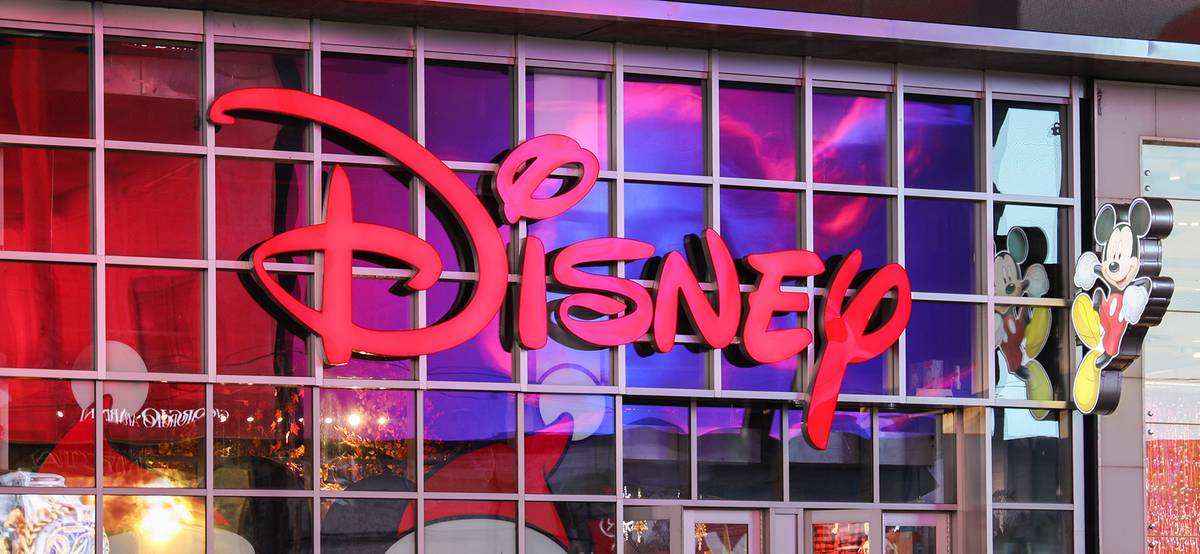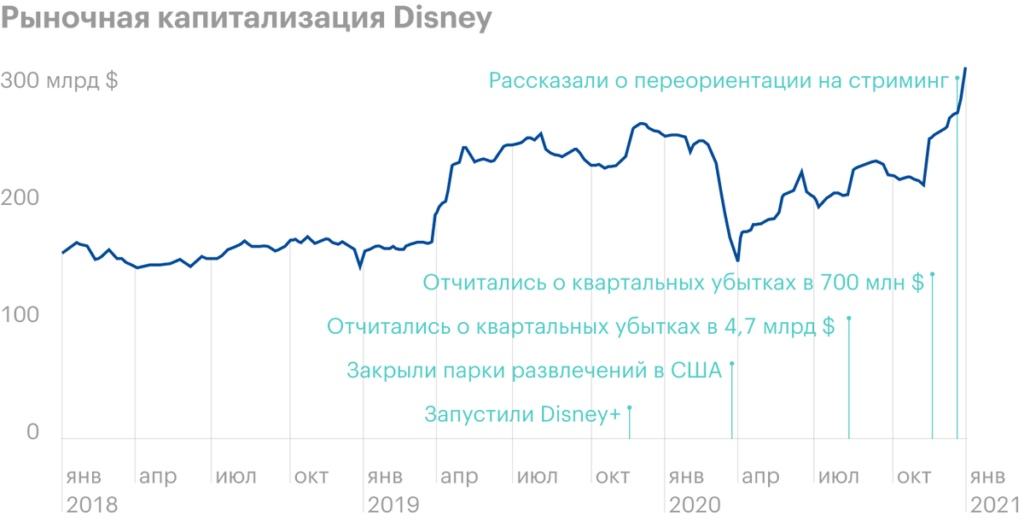
Companies will take money from investors and give it to their employees. American tax will force stock market tremble. Disney can hope things get better, but it is not exactly. Pension funds out of greed go to the stock exchange.
Disclaimer: when we talk about, that something has grown, we mean a comparison with the same quarter a year earlier. Since all issuers are from the USA, then all results in dollars. When creating the material, sources were used, inaccessible to users from the Russian Federation. We hope, Do you know, what to do.
More salaries!
America is suffering so much from a labor shortage right now., that even the giant retail chain Walmart (NYSE: WMT) compelled to raise wages 565 thousands of its American workers with 11 $ in time to 12 $. This is actually a very large increase., if two factors are taken into account: the size of the company itself - it is the largest retail chain in the United States - and even then, what about the low-skilled workforce.
This means, that salaries will be forced to increase by all other players in the retail sector. There are other ways to attract employees: the same Amazon (NASDAQ: AMZN) advertises driver vacancies and separately indicates, that does not test applicants for marijuana use.
In general, wage increases now affect all sectors, not just retail. Cloud service Veeva Systems (NYSE: VEEV), for example, also increases salaries by 5% all employees, except for top management and those, who gets more 300 thousand dollars a year.
All in all, this news means, what to prepare for unpleasant surprises in the next reporting season: an increase in labor costs will likely have a negative impact on margins. However, the degree of damage will be very different - low-margin sectors will suffer the most: retail, hospitality industry, logistics.
Compulsion, capital and the American state
The US Congressional Budget Office released an analysis of the possible effect of increasing funding for the US Internal Revenue Service. The Office concluded, that the increase in tax funding in the period 2022-2031 by 80 billion dollars will lead to additional 200 billion dollars in taxes due to audit and pressure on non-payers - what 36% fewer Biden scores.
This is an important point, because increasing the capacity of the fiscal authorities was an important part of Biden's plan to increase taxes, to raise funds for massive infrastructure investments. Truth, governance analysis does not take into account the Biden administration's plans to empower the IRS with the right to monitor the movement of money in bank accounts based on bank reports - this measure alone could help collect as much 460 billion dollars over the next 10 years.
The prospects for collecting US taxes are important for the exchange, if only because, what, the less taxes the American government collects, the more it will be motivated to engage in the issue of new bonds. It can be objected to, that on the scale of the American national debt, which is estimated at tens of trillions of dollars, are relatively small amounts..
But it's not that simple.. The more unscheduled auctions for the sale of US bonds will take place, the higher the probability will be, that the US government will put pressure on the management of the largest investment funds. Will the government do this in order to provoke a correction in the stock market, to increase the attractiveness of own debt securities, - after all, in moments of big collapses, investors usually shift from shares of private companies to government bonds. So the stock market is in danger of becoming even more volatile due to the growing need of the US government for money..
Disney's iron fist
New movie Marvel Cinematic Universe "Shan-Chi and the Legend of the Ten Rings" collected in theaters around the world 139,7 million dollars - more than expected by analysts 127,6 million. At the same time, the film has not yet been released in China - and in general it may not be released there., - and that can be a problem, as 10-20% of Marvel movies box office usually comes from China. And then there's a Chinese-themed movie.: there is a high probability, what, if the movie is released in china, Fees can be very, very high..
This is very important news for Disney. (NYSE: DIS) for several reasons. Although the box office is not the largest portion of Disney's revenue, Shang-Chi results may indicate a potential high viewership interest in the company's products. This could seriously spur the growth of subscribers to the Disney + streaming service., where Shang-Chi comes out in October. And as we already know, no matter how unprofitable the streaming service of the company may be, investors react with great enthusiasm to all the positive news about its development.
Also in November, The Eternals are released with a much more stellar cast., than Shang-Chi, so if you project the current situation into late autumn, then the harvest in streaming and cinemas may be even greater.
Disney movie rental data also gives hope, that the company's most important offline amusement park business can count on good attendance: if people go to cinemas more than expected, then, maybe, and they will go to the parks no less.
Continuing the logical chain of reasoning, Based on all these data and assumptions, one can hope, that sporting events this year will take place in full. This will also be good news for Disney., after all, the second most important source of income for the company is the sports channel ESPN.
All of the above, Certainly, does not take into account the possibility of introducing a new strict quarantine, which will zero out all the achievements of the company in general. But with quarantines and new waves of the virus, nothing can be accurately predicted.. As they said in this case in the wonderful film "The 13th Warrior": "Maybe, will pass by, maybe, everyone will be killed ".

Spent!
The legendary Ray Dalio's hedge fund Bridgewater, probably, will no longer serve California's Orange County Employees Retirement System (OCERS). Representatives of OCERS, a pension fund with assets 21,459 billion dollars - dissatisfied with the low profitability of the Dalio fund Pure Alpha. Profitability was in average annual terms 4,5% per annum starting from 2005 of the year. Basically, the news itself is not that very loud: investments in the Dalio fund by OCERS amount to approximately 180 million dollars. For Dalio, this will also not be the worst loss.: generally under his control somewhere 105 billion dollars. But I think, that OCERS' departure from Dalio could start a massive exodus of US pension funds into riskier strategies.
Even before the pandemic in America, the obligations of pension funds significantly exceeded the amount of money earned - this significantly increased the attractiveness of the stock market in the eyes of pension fund managers. But there is still not enough money for pension funds, what can be seen from the history with OCERS. In this regard, we can expect an increase in risky investments from pension funds..
"Risky" in their case means mostly investing in the stock market, but an influx of money into private startups and even riskier instruments like cryptocurrencies is also possible.
Since in the case of pension funds we are talking about tens of trillions in assets, this will lead to a noticeable inflow of funds into the stock market. Although the most likely beneficiaries on the exchange here are a variety of unprofitable startups, promising investors unrealizable growth prospects.
But the same influx of money from pension funds into speculative strategies can lead to greater volatility - since these funds go to the exchange out of a desire to earn more.
Returning to the original topic of the news: even if OCERS doesn't leave Dalio, then the very fact of such pressure from investors can make Dalio and other big managers behave more risky. So the end result might be the same., even if OCERS does not go to another manager: the very fact of complaints about low returns will be a good signal for all managers, that it would be necessary to “turn on the gas” and show better results, albeit at the cost of higher risks.
